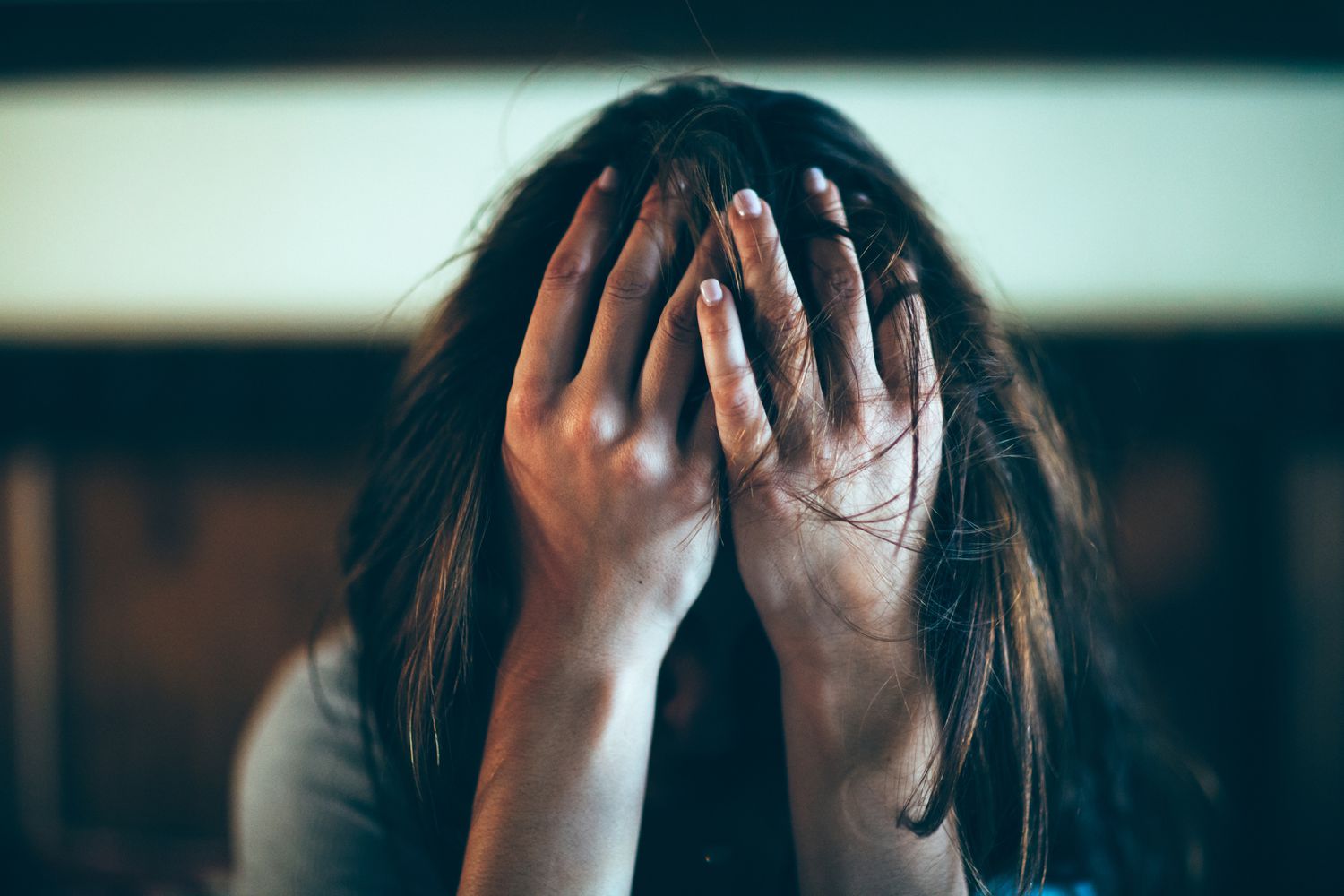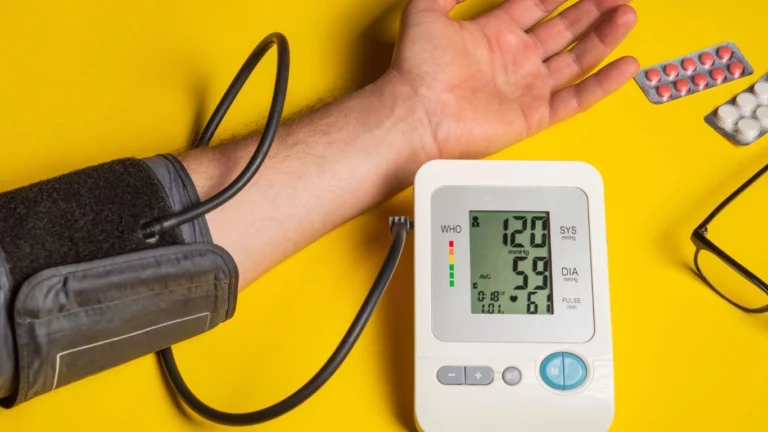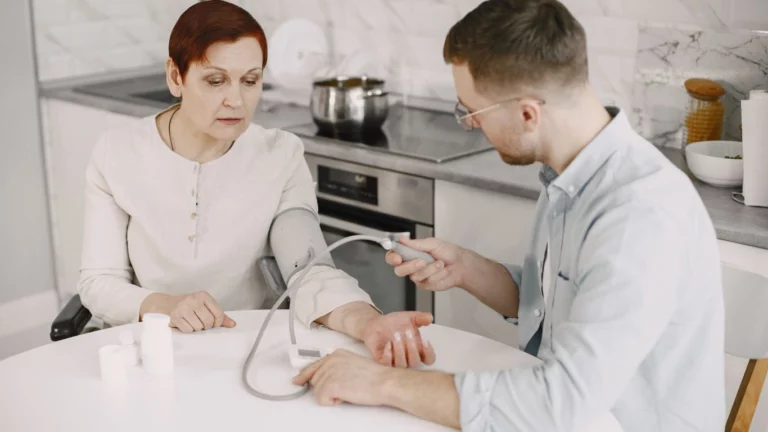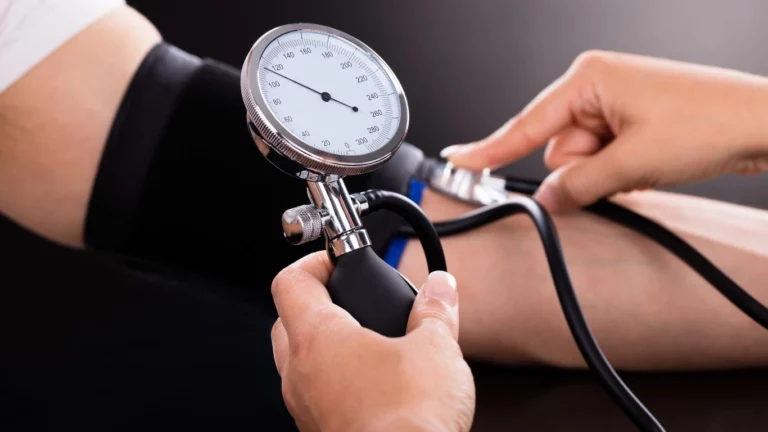Understanding the Relationship Between Anxiety and High Blood Pressure
Discover the link between anxiety and high blood pressure in this informative article. Understand different anxiety disorders and their impact, while learning how chronic anxiety can elevate blood pressure.
Anxiety and high blood pressure are two common health issues that affect many people worldwide. While they may seem unrelated, there is growing evidence suggesting a link between anxiety and high blood pressure. In this comprehensive article, we will delve into the relationship between these two conditions, their potential effects on health, and how managing anxiety can help control blood pressure levels. Let’s start by understanding anxiety and high blood pressure separately.
Understanding Anxiety
Anxiety is a natural response that prepares our bodies to cope with potential threats or dangers. It is a normal part of life and can be helpful in certain situations. However, when anxiety becomes excessive and prolonged, it can lead to anxiety disorders, affecting a person’s overall well-being. Here, we explore the concept of anxiety and various types of anxiety disorders:
What is Anxiety?
Anxiety is a complex emotional state characterized by feelings of unease, worry, fear, or apprehension. It is often accompanied by physical symptoms such as increased heart rate, sweating, trembling, and restlessness. While occasional anxiety is considered normal, chronic anxiety can significantly impact a person’s quality of life.
Types of Anxiety Disorders
Several types of anxiety disorders exist, each with its unique characteristics and symptoms. Understanding these different types can help individuals recognize their condition and seek appropriate help:
- Generalized Anxiety Disorder (GAD): GAD involves excessive worry and anxiety about everyday situations and events. Individuals with GAD often struggle to control their worrying, and the anxiety may interfere with daily activities.
- Panic Disorder: Panic disorder is characterized by recurring panic attacks, which are intense episodes of fear and discomfort. These attacks can happen unexpectedly and may lead to avoidance of certain places or situations.
- Social Anxiety Disorder (Social Phobia): Social anxiety disorder involves an intense fear of social situations, leading to avoidance of social interactions. Individuals with social anxiety may fear being judged or humiliated in public settings.
- Specific Phobias: Specific phobias are intense fears of specific objects or situations, such as heights, spiders, or flying. When exposed to their phobia, individuals may experience extreme anxiety and panic.
- Obsessive-Compulsive Disorder (OCD): OCD is characterized by intrusive, unwanted thoughts (obsessions) and repetitive behaviors (compulsions) performed to alleviate anxiety. These rituals can consume a significant amount of time and cause distress.
- Post-Traumatic Stress Disorder (PTSD): PTSD occurs after experiencing or witnessing a traumatic event. Individuals with PTSD may re-experience the trauma through nightmares or flashbacks and may avoid triggers associated with the event.
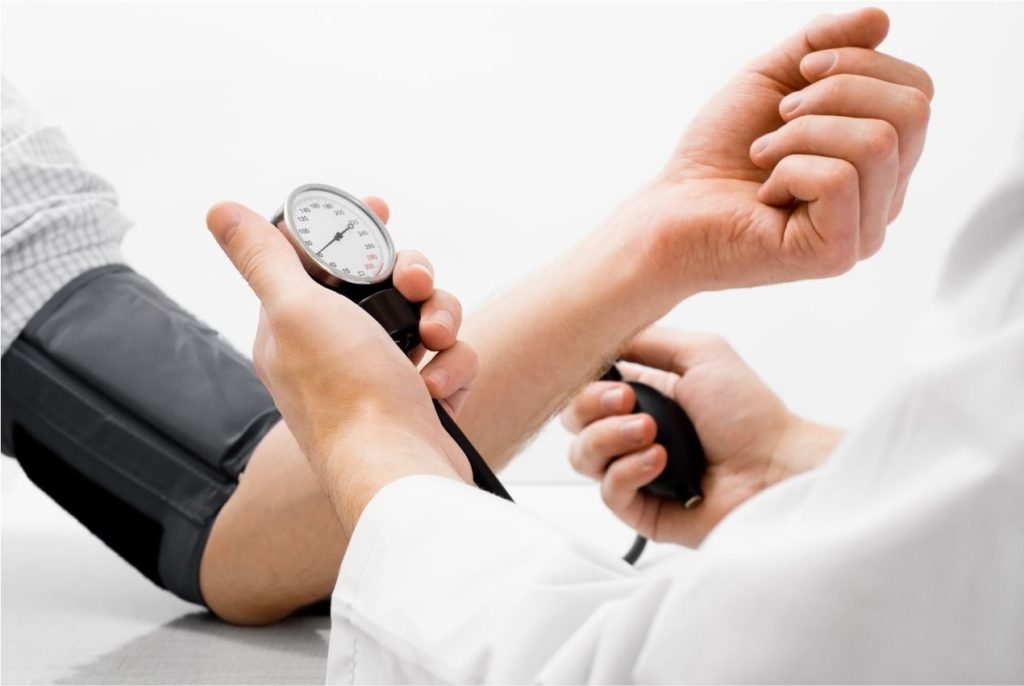
Understanding High Blood Pressure (Hypertension)
High blood pressure, also known as hypertension, is a condition where the force of blood against the artery walls is consistently too high. It is a significant risk factor for cardiovascular diseases and other health problems. Let’s explore the key aspects of high blood pressure:
What is High Blood Pressure?
High blood pressure occurs when the force of blood pushing against the artery walls is consistently higher than normal. Blood pressure is measured using two values: systolic pressure (the pressure when the heart beats) and diastolic pressure (the pressure when the heart is at rest between beats). Normal blood pressure is typically around 120/80 mmHg.
Causes and Risk Factors for Hypertension
Several factors can contribute to the development of high blood pressure, including:
- Family history of hypertension
- Unhealthy diet high in salt and saturated fats
- Sedentary lifestyle and lack of physical activity
- Being overweight or obese
- High stress levels
- Smoking and excessive alcohol consumption
Additionally, certain medical conditions like chronic kidney disease and sleep apnea can also increase the risk of hypertension.
Effects of Chronic High Blood Pressure on Health
Chronic high blood pressure can have severe consequences on various organs and systems in the body. Some of the potential health effects of uncontrolled hypertension include:
- Increased risk of heart disease and stroke
- Damage to blood vessels and organs
- Kidney damage
- Vision problems
- Cognitive impairment
It is crucial to manage and control blood pressure levels to prevent these complications.

The Connection Between Anxiety and High Blood Pressure
While anxiety and high blood pressure may appear to be unrelated, research suggests that there is a significant connection between these two conditions. The relationship can be complex and bidirectional, meaning anxiety can lead to blood pressure spikes, and long-term anxiety can contribute to chronic high blood pressure. Let’s explore this connection in detail:
Overview of the Anxiety-Blood Pressure Relationship
The body’s stress response, often triggered by anxiety, can lead to temporary increases in blood pressure. When a person feels anxious or threatened, the sympathetic nervous system releases stress hormones like adrenaline and cortisol. These hormones prepare the body for a “fight or flight” response, which includes elevating blood pressure to ensure adequate blood flow to vital organs and muscles.
In situations of acute stress or anxiety, these temporary increases in blood pressure are generally harmless. However, chronic anxiety can lead to more frequent and sustained elevations in blood pressure, potentially contributing to hypertension over time.
How Anxiety Can Lead to Temporary Blood Pressure Spikes
Temporary spikes in blood pressure due to anxiety can happen in various situations, such as before public speaking, during stressful events, or when facing a phobia. While these spikes are usually short-lived and do not pose significant health risks for individuals with normal blood pressure, they can be concerning for those with pre-existing hypertension.
It’s essential to recognize situations that trigger anxiety and learn coping strategies to manage stress effectively. For individuals with hypertension, controlling anxiety can be an integral part of their blood pressure management plan.
Long-Term Effects of Chronic Anxiety on Blood Pressure
Chronic anxiety, especially in those predisposed to hypertension, can contribute to sustained high blood pressure levels. When anxiety becomes a constant presence in a person’s life, the body may maintain elevated stress hormone levels, which can chronically elevate blood pressure.
In addition to the physiological effects, chronic anxiety can lead to unhealthy lifestyle habits, such as overeating, smoking, or excessive alcohol consumption, further increasing the risk of developing hypertension.
Research Studies and Findings
Several research studies have explored the relationship between anxiety and high blood pressure, shedding light on the mechanisms linking the two conditions. Some studies have found that anxiety disorders are associated with an increased risk of hypertension, particularly in middle-aged and older adults.
Moreover, addressing anxiety through behavioral therapies or medications has shown potential benefits in reducing blood pressure levels in individuals with hypertension and anxiety disorders.

Managing Anxiety to Help Control Blood Pressure
Given the connection between anxiety and high blood pressure, managing anxiety effectively can play a crucial role in controlling blood pressure levels. Below are strategies and lifestyle modifications that can help in managing anxiety and maintaining healthy blood pressure:
Lifestyle Modifications
- Stress Reduction Techniques: Practicing stress reduction techniques, such as mindfulness meditation, deep breathing exercises, and yoga, can help lower anxiety levels and reduce blood pressure.
- Regular Exercise: Engaging in regular physical activity can have positive effects on both anxiety and blood pressure. Exercise releases feel-good neurotransmitters and can help lower stress levels.
- Balanced Diet and Nutrition: Adopting a diet rich in fruits, vegetables, whole grains, and lean proteins while reducing salt and saturated fats can support overall health and well-being.
- Sufficient Sleep and Rest: Getting enough sleep and restorative rest is essential for managing anxiety and maintaining healthy blood pressure levels.
Seeking Professional Help
- Therapy and Counseling: Psychotherapy, such as cognitive-behavioral therapy (CBT), can be highly effective in treating anxiety disorders and providing coping mechanisms.
- Medications for Anxiety: In some cases, healthcare professionals may prescribe medications to manage severe anxiety. These medications can help reduce anxiety levels and prevent associated blood pressure spikes.
Importance of Regular Blood Pressure Monitoring
Regular monitoring of blood pressure is crucial for individuals with hypertension and anxiety. Tracking blood pressure levels can help identify any fluctuations and determine the effectiveness of anxiety management strategies. Additionally, it enables timely adjustments to treatment plans if needed.

Tips for Preventing Anxiety-Related Blood Pressure Spikes
Prevention is always better than cure. Implementing proactive measures to prevent anxiety-related blood pressure spikes can be beneficial. Here are some tips to consider:
Identifying Triggers and Coping Strategies
Recognizing situations or triggers that provoke anxiety can help individuals develop appropriate coping strategies. This might involve avoiding certain stressors or learning healthy ways to respond to them.
Creating a Supportive Environment
Having a strong support system can significantly impact an individual’s ability to manage anxiety. Surrounding oneself with supportive and understanding friends or family members can provide emotional comfort during challenging times.
Incorporating Relaxation Techniques into Daily Routine
Regularly practicing relaxation techniques, such as meditation, progressive muscle relaxation, or guided imagery, can help reduce overall stress levels and promote a sense of calmness.

When to Seek Medical Attention
While anxiety-related blood pressure spikes are common and usually not dangerous for individuals with normal blood pressure, certain situations may warrant immediate medical attention:
Recognizing Severe Anxiety Symptoms
If anxiety symptoms become severe, interfere with daily activities, or cause significant distress, it is essential to seek professional help from a healthcare provider or mental health specialist.
Identifying Signs of Hypertensive Crisis
Hypertensive crisis is a severe condition where blood pressure readings are dangerously high (systolic pressure above 180 mmHg or diastolic pressure above 120 mmHg). If someone experiences symptoms like severe headache, chest pain, shortness of breath, or confusion, emergency medical attention should be sought immediately.
Emergency Actions for Acute Situations
If someone experiences a panic attack or acute anxiety symptoms that lead to concerning changes in blood pressure or heart rate, seeking immediate medical attention is crucial. In such cases, visiting the nearest emergency room or calling emergency services is recommended.

Conclusion
Anxiety and high blood pressure are interconnected, and managing anxiety can play a vital role in controlling blood pressure levels. By understanding the relationship between anxiety and hypertension, individuals can take proactive steps to reduce anxiety and promote overall well-being. Engaging in stress reduction techniques, seeking professional help when needed, and maintaining a healthy lifestyle are essential components of an effective anxiety management plan. Regular blood pressure monitoring and knowing when to seek medical attention can further contribute to better health outcomes. With proper awareness and action, individuals can empower themselves to lead a healthier and more fulfilling life.
Remember to include relevant keywords naturally within the content, particularly in the headings, to enhance search engine visibility for the article.
Appendices
References:
- Albert, C. M., Chae, C. U., Rexrode, K. M., Manson, J. E., & Kawachi, I. (2005). Phobic anxiety and risk of coronary heart disease and sudden cardiac death among women. Circulation, 111(4), 480-487.
- Hildrum, B., Mykletun, A., Stordal, E., Bjelland, I., & Dahl, A. A. (2007). Association of low blood pressure with anxiety and depression: the Nord-Trondelag Health Study. Journal of Epidemiology and Community Health, 61(1), 53-58.
- Suls, J., Bunde, J., & Anger, M. J. (2005). Effects of habitual anger on ambulatory blood pressure and negative affect: A longitudinal analysis. Health Psychology, 24(1), 80-84.
- National Heart, Lung, and Blood Institute (NHLBI). (2021). High Blood Pressure. https://www.nhlbi.nih.gov/research/high-blood-pressure
FAQs:
- Can anxiety cause high blood pressure?
- Yes, anxiety can lead to temporary spikes in blood pressure and, in the long term, contribute to chronic hypertension.
- How can I manage anxiety?
- Stress reduction techniques, regular exercise, a balanced diet, therapy, and medications can be effective in managing anxiety.
- Is there a bidirectional relationship between anxiety and high blood pressure?
- Yes, anxiety can lead to blood pressure spikes, and chronic anxiety may contribute to sustained hypertension.
- Are there any lifestyle modifications to help control both anxiety and blood pressure?
- Yes, adopting a healthy lifestyle with stress reduction, exercise, and balanced nutrition can benefit both anxiety and blood pressure levels.
Disclaimer:
The information provided in this article is for educational purposes only and should not be considered a substitute for professional medical advice, diagnosis, or treatment. Always consult with a qualified healthcare provider for personalized guidance on managing anxiety and high blood pressure. The author and publisher of this article are not liable for any adverse effects or consequences resulting from the use of the information provided.

Camellia Wulansari is a dedicated Medical Assistant at a local clinic and a passionate health writer at Healthusias.com. With years of hands-on experience in patient care and a deep interest in preventive medicine, she bridges the gap between clinical knowledge and accessible health information. Camellia specializes in writing about digestive health, chronic conditions like GERD and hypertension, respiratory issues, and autoimmune diseases, aiming to empower readers with practical, easy-to-understand insights. When she’s not assisting patients or writing, you’ll find her enjoying quiet mornings with coffee and a medical journal in hand—or jamming to her favorite metal band, Lamb of God.
